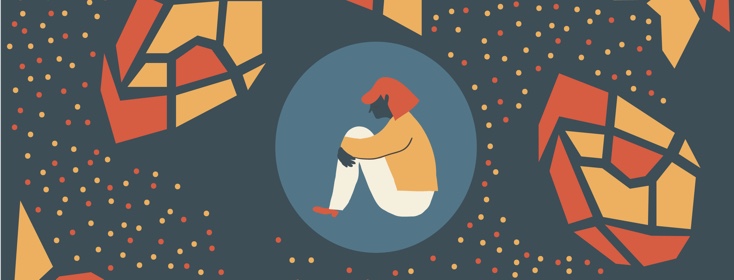Do I View My Life With Psoriasis As Suffering?
This question has been presented to me on numerous occasions and I have reluctantly put it in the back of my mind. This is a subject or for better terminology, a word no one likes to hear.
I've had psoriasis for 55 years of my life. Yes, it's been even to the point of critical and I've spent time in the hospital. I had to ponder this one. I owe the answer to myself. Did I feel I was suffering? Did I have anger towards anyone? Who did I have to blame for this?
What is suffering?
Let’s break this down. Suffering is the state of ongoing pain, distress, and hardship. I have certainly gone through all of this. For me, I never liked the word suffering because I believe that if I felt I was suffering, it would prolong my healing process. I did have my good and bad days. Long-term illness gives you strength. My strength and endurance are so much more than it used to be. I believe that suffering has its place in my life as to what its job was to do. However, I've never just sat and cried out that I was suffering. I believe it is how we let our minds perceive that what we go through.
In my darkest moments, I would try to see why I had to have psoriasis. I have even thought things like, am I being punished for someone else's wrong? Your mind really begins to spiral in all type of directions. I would have to tell myself; you’re a good person; a kind person and a loving person. I have always been a giver and not a taker. I know or I always equated sickness and suffering for the bad people or evil ones. This is so far from the truth. Great and wonderful people are not immune from suffering. This changed my whole philosophy on the suffering question that was presented to me.
Looking for the silver lining
My psoriasis became a chronic illness to develop me, grow me, change me and ultimately make me a woman that would be strong. Psoriasis has a valuable place in my life. Therefore, I don’t feel that I suffered all my life with psoriasis; yet I feel there was value in what we call suffering.
I have always had the foresight to know there was a purpose beyond me for getting psoriasis as a child. I didn't know what. I just intuitively knew. When I look at suffering and really identify with it. I see people who are unable to change their condition. I see people that can't afford the necessary medications, creams, and biologics to get them better. Is this suffering? I don’t know. I believe people suffer differently.
When you go days without food you suffer. Some of us suffer in silence. I believe that when you been fortunate enough to get the medical treatment, and be treated, have the necessary support around you and ultimately come to the astonishing revelation that you have value and won’t allow me to feel I suffered. This is my take on this and when I know that my contribution to the world is making a difference. I can't look at it as suffering.
Not letting psoriasis control my life
I live in pain and take medication with awful side effects. I have limitations on most days. I've been in the place of loneliness, tears, and the whole nine years for a good part of my life.
After many years, I still wrestle with the word suffering and have reversed it in my life. I don't want to allow psoriasis to ever feel that it has ever brought me to a place I couldn't control. I have met many people who have diseases who have suffered tremendously and they have yielded to bitterness and hate; so where does this put me? Suffering is a state of mind. I hope I've brought clarification to the mystery of this question.
Do I feel I've suffered after having psoriasis for more than 55 years? My answer is no. I have the freedom to give meaning to what happens to me. I have decided that suffering is meant to have a value that many don't see. Do you see me now?

Join the conversation